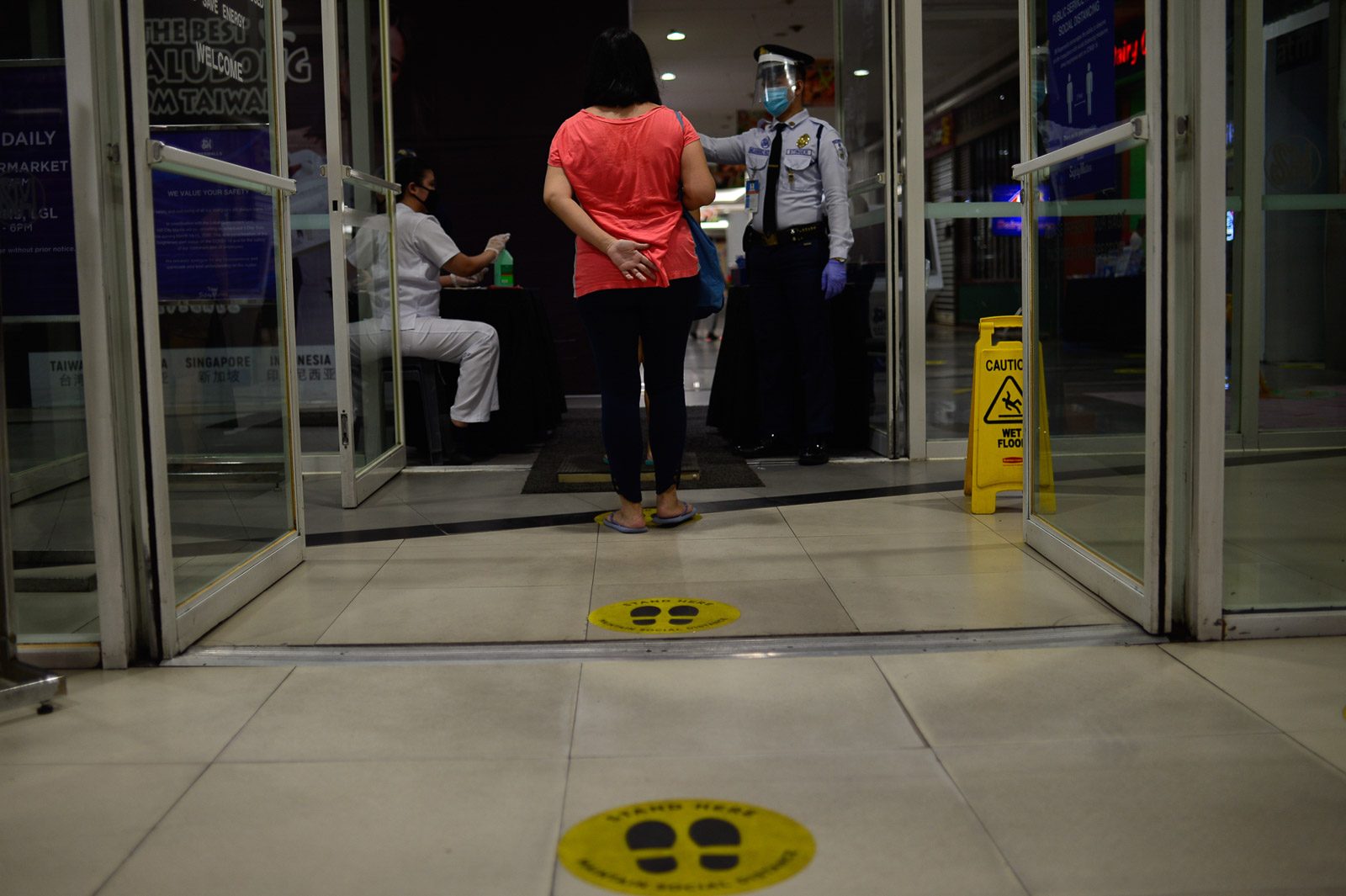SUMMARY
This is AI generated summarization, which may have errors. For context, always refer to the full article.

MANILA, Philippines – As work resumed under modified enhanced community quarantine, employers can now negotiate with their workers to slash their wages and benefits up to 6 months, according to Labor Advisory No. 17 issued May 16.
Under the new Department of Labor and Employment order, businesses and workers may “agree voluntarily and in writing” to temporarily adjust the employees’ salaries and benefits, as provided in the contract, company policy, or collective bargaining agreement.
“The adjustments in wage and/or wage-related benefits shall not exceed 6 months or the period agreed upon the collective bargaining agreement, if any. After such period, employers and employees shall review their arrangement and may renew the same,” Labor Secretary Silvestre Bello III said.
Under MECQ and general community quarantine, partial physical work operations are allowed. (EXPLAINER: What happens under general community quarantine?)
The advisory, a copy of which was made available to the media on Monday, May 18, prescribed certain work arrangements that employers can follow, ranging from allowing work-from-home to a implementing a combination of the following:
- Transferring employees to another branch or outlet of the same employer;
- Assigning employees to another function or position in the same office or branch of the same employer;
- Reduction of normal working days per day or week;
- Job rotation;
- Partial closure of establishment where some units or departments continue work while others are shut down;
- Other feasible work arrangements.
“We know that businesses have suffered so much, but for the sake of our economy we encourage them to dig deeper into their vast reserve of charity and benevolence so that their workers and the communities can continue to further weather this crisis that we are all facing and fighting together,” Bello said.
The alternative work arrangements, DOLE said, shall be implemented “as long as the public health crisis exists.”
Employers are required to submit their preferred work scheme to the DOLE regional office that has jurisdiction over their business.
In a statement, Nagkaisa Labor Coalition urged the DOLE to take back the advisory, calling the order a “crude instrument for super exploitation.”
Nagkaisa raised the possibility that workers may be threatened by their employers with dismissal if they don’t “voluntarilty” agree with the wage cut.
“Nagkaisa believes that this proposition is highly disadvantageous to workers. Coming from a long ECQ, workers, especially those who are unorganized, may have no option except to follow the wishes of their employers,” Nagkaisa chairperson Sonny Matula said.
“Rather than ask workers to pay for the economic recovery of their employers, DOLE should ensure that workers’ welfare are properly considered in the stimulus package that government is now preparing,” Matula added.
Mass testing
The government also passed the burden of mass testing to employers in a separate DOLE order. (READ: Government to rely on private sector to boost coronavirus testing capacity)
Labor Advisory No. 18 required employers to shoulder the cost of controlling COVID-19 in the workplace, including testing, disinfecting facilities, providing hand sanitizers and protective equipment, and posting informational materials about the disease.
For contract workers, such as security guards, maintenance personnel, and those in the construction industry, DOLE said that it should be covered by the client or the contractor.
“No cost related or incidental to COVID-19 prevention and control measures shall be charged directly or indirectly to the workers,” Bello said.
In an interview with DZBB on Monday, Employers Confederation of the Philippines chairman Sergio Ortiz-Luis Jr said that the government should shoulder the testing of private sector employees, as majority of businesses don’t have the capacity to do so.
At least 99.25% or 998,324 of the business establishments in the Philippines are part of the micro, small, and medium enterprises, according to the Department of Trade and Industry in 2019. More than half of them, or 525,000 establishments, closed shops during the ECQ. (READ: ‘Sariling diskarte’: The heavy impact of lockdown on micro, small businesses)
Presidential Spokesperson on Monday admitted that the government doesn’t have the capacity to test millions of Filipinos like Wuhan, China, the ground zero of the pandemic.
“Ini-increase natin iyong capacity natin ng testing kaya nga we’re aiming na aabot tayo sa 30,000. Pero in terms of mass testing na ginagawa ng Wuhan na all 11 million, wala pa pong ganiyang programa at iniiwan natin [ang mass testing] sa pribadong sektor,” Roque said Monday.
(We are trying to increase our capacity for testing that’s why we’re aiming to reach 30,000. But in terms of mass testing that Wuhan did for all of its 11 million residents, we don’t have a program like that and we are leaving mass testing to the private sector.)
As of Monday afternoon, the Philippines has 12,718 coronavirus cases, 831 of whom have died from the virus. – Rappler.com
Add a comment
How does this make you feel?
There are no comments yet. Add your comment to start the conversation.